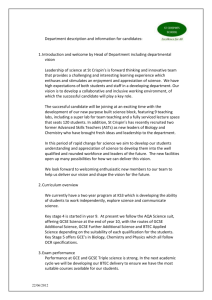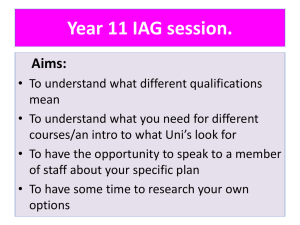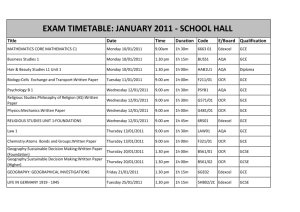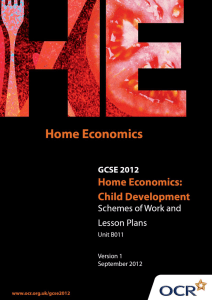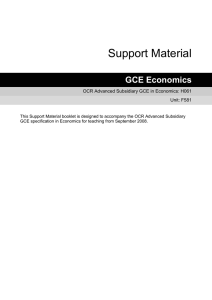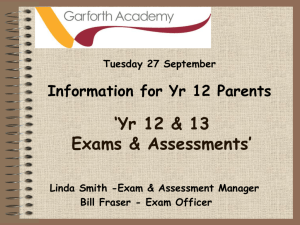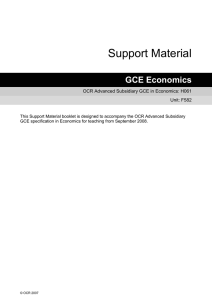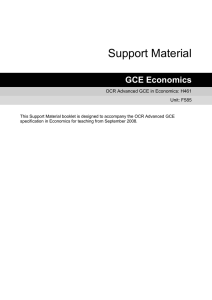Economics at Portland Place School
advertisement
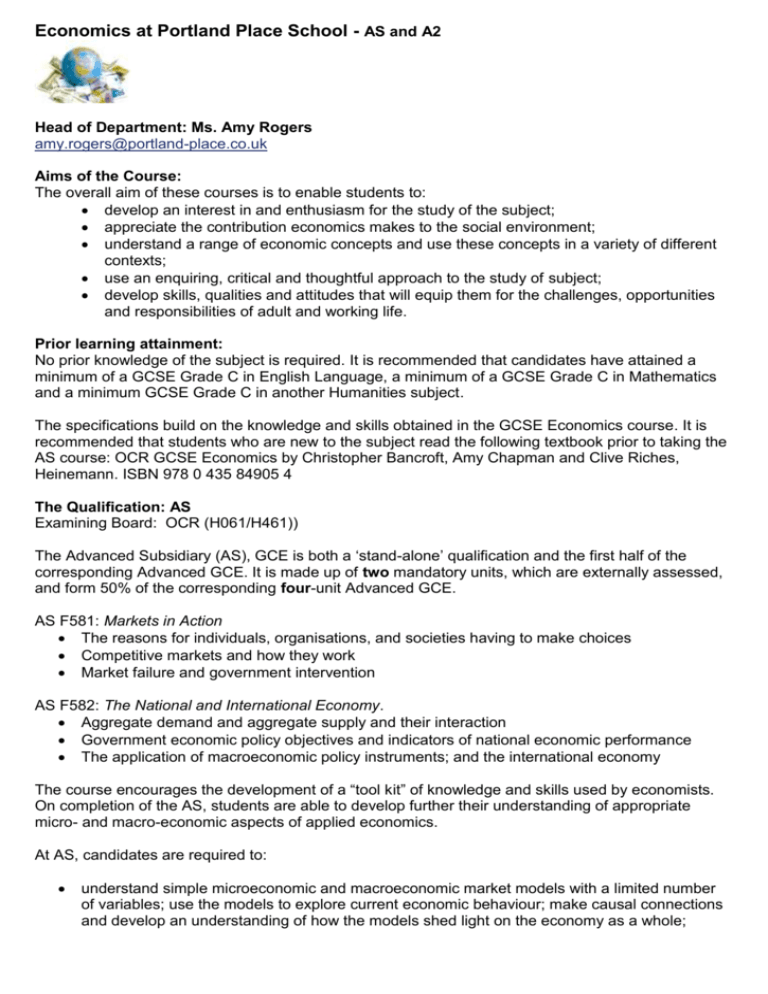
Economics at Portland Place School - AS and A2 Head of Department: Ms. Amy Rogers amy.rogers@portland-place.co.uk Aims of the Course: The overall aim of these courses is to enable students to: develop an interest in and enthusiasm for the study of the subject; appreciate the contribution economics makes to the social environment; understand a range of economic concepts and use these concepts in a variety of different contexts; use an enquiring, critical and thoughtful approach to the study of subject; develop skills, qualities and attitudes that will equip them for the challenges, opportunities and responsibilities of adult and working life. Prior learning attainment: No prior knowledge of the subject is required. It is recommended that candidates have attained a minimum of a GCSE Grade C in English Language, a minimum of a GCSE Grade C in Mathematics and a minimum GCSE Grade C in another Humanities subject. The specifications build on the knowledge and skills obtained in the GCSE Economics course. It is recommended that students who are new to the subject read the following textbook prior to taking the AS course: OCR GCSE Economics by Christopher Bancroft, Amy Chapman and Clive Riches, Heinemann. ISBN 978 0 435 84905 4 The Qualification: AS Examining Board: OCR (H061/H461)) The Advanced Subsidiary (AS), GCE is both a ‘stand-alone’ qualification and the first half of the corresponding Advanced GCE. It is made up of two mandatory units, which are externally assessed, and form 50% of the corresponding four-unit Advanced GCE. AS F581: Markets in Action The reasons for individuals, organisations, and societies having to make choices Competitive markets and how they work Market failure and government intervention AS F582: The National and International Economy. Aggregate demand and aggregate supply and their interaction Government economic policy objectives and indicators of national economic performance The application of macroeconomic policy instruments; and the international economy The course encourages the development of a “tool kit” of knowledge and skills used by economists. On completion of the AS, students are able to develop further their understanding of appropriate micro- and macro-economic aspects of applied economics. At AS, candidates are required to: understand simple microeconomic and macroeconomic market models with a limited number of variables; use the models to explore current economic behaviour; make causal connections and develop an understanding of how the models shed light on the economy as a whole; be aware of the assumptions of the basic model of supply and demand; explain the way it works in both words and diagrams; use the model to describe, analyse and predict economic behaviour; develop an understanding of the range of ways in which markets may fail; understand the implications of market failure for individuals, firms and the government; use the basic AS/AD model and data to understand why supply-side and/or demand-side policies may be seen as appropriate ways of managing an economy; predict the possible impact of such policies and recognise the assumptions involved; argue for different policy approaches and identify criteria for success. The Qualification: A2 Examining Board: OCR (H061/H461)) The Advanced GCE, (A2), is made up of two mandatory units at AS and two further units at A2. These A2 units are externally assessed. A2 F583: Economics of Work and Leisure Nature of work and leisure and trends in employment and earnings Market structures and competitive behaviour in leisure markets Labour demand, supply and wage determination Market failure and the role of the Government and unions in the labour market F585: The Global Economy. Macroeconomic performance Trade and integration Development and sustainability The economics of globalisation At A2, candidates are required to: Demonstrate an understanding of the connections between different elements of the subject, (synoptic assessment). In particular, synoptic assessment tests candidates' ability to: o understand the ways in which many economic issues, problems and institutions are interrelated; o understand how economic concepts, theories and techniques may be relevant to a range of different contexts; o apply such concepts, theories and techniques in the analysis of economic issues and problems and in the evaluation of arguments and evidence. The emphasis in synoptic assessment is on candidates' ability to think as economists and to use the economist's ‘tool kit' of concepts, theories and techniques effectively. Scheme of Assessment Unit F581 Level AS Name Markets in Action Duration 1hr 30min AS 50% A2 25% F582 AS 1hr 30min 50% 25% F583 A2 National and International Economy Economics of Work and Leisure 1hr 30min 25% F585 A2 The Global Economy 1hr 30min 25%

